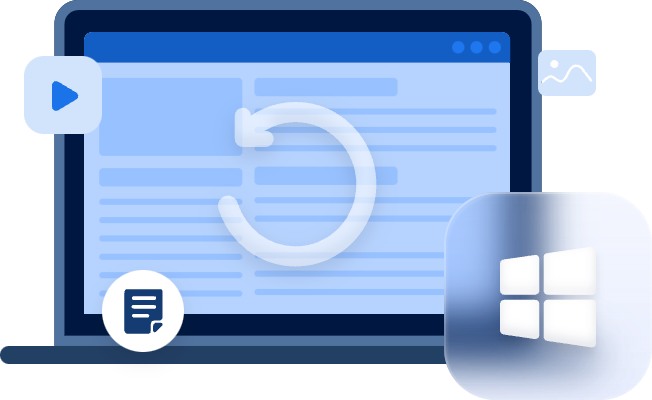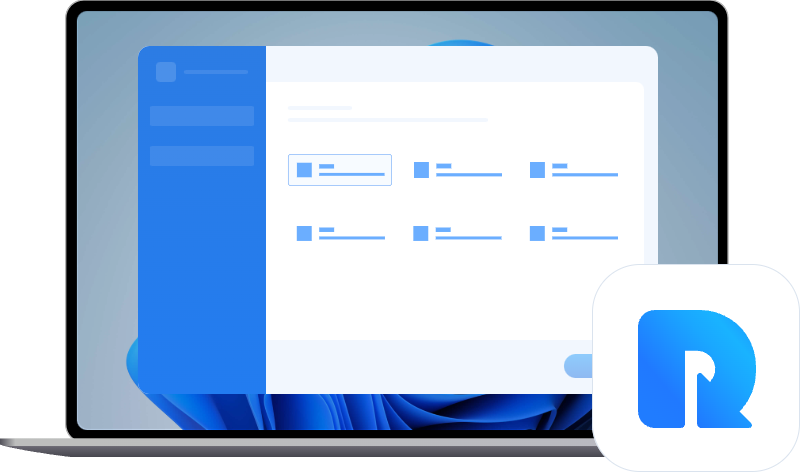Unlocking the Mystery: Fix External Drive File System Error 65535
On this page, go to learn about ways to fix external drive file system error 65535, and get insights into preventing file system errors for a smoother computing experience.
Experiencing the inconvenience of file system error 65535 on your external hard drive can disrupt your workflow, hindering essential operations like copying, modifying, creating folders, or deleting files.
This issue, as encountered by many, can be particularly frustrating when your academic performance relies on the seamless access to your crucial data stored on the affected drive. To swiftly and securely resolve this dilemma, understanding the signs and anticipating the occurrence of such errors is crucial.
Uncover the possible reasons behind file system error 65535, making future encounters more manageable. Embrace a comprehensive guide offering quick and reliable solutions to promptly navigate through this error and regain control over your external drive. Your professional and personal data deserve a hassle-free sanctuary, and this guide is your key to ensuring just that.
What are the signs of the 65535 error?
Recognizing the signs of file system error 65535 is pivotal to effectively addressing and resolving the issue. Your computer may exhibit specific indicators pointing towards the presence of this error, prompting you to take timely action. If you observe the following issues on your system, it's likely that you are contending with file system error 65535.
Computer Freezes:
Your computer experiences unexplained freezes, making it sluggish to load programs.
Both the mouse and keyboard operate with noticeable delays, signaling the impending 65535 error message.
Startup or Shutdown Issues:
The error is prone to manifest during crucial system operations such as startup or shutdown.
Users have reported instances where the 65535 error emerges during these critical actions.
Updating OS Challenges:
File system error 65535 may rear its head when updating or installing the operating system.
If you encounter any or a combination of the mentioned errors, it's time to prepare for addressing and fixing the file system error 65535. Be equipped to navigate through the solutions and regain control over your system's stability.
Why does the 65535 error code occur?
Understanding the origins of the file system error 65535 is essential before delving into effective solutions. Rather than hastily seeking remedies, gaining insights into the root causes of this predicament can empower you to navigate future occurrences with confidence. Several factors contribute to the emergence of this error, with some of the most prevalent culprits outlined below.
Bad Sectors:
Bad sectors, permanent disk sector damage, lead to data loss when encountered.
Operating systems often skip these damaged sectors, contributing to the file system error 65535.
System Failure During Windows Loading or Updating:
Improper loading or interrupted updating of Windows, caused by factors like power shortages, can result in system failure.
These scenarios contribute to NTFS file system errors, manifesting as the 65535 error code.
Virus and Malware Infections:
Internet use exposes your system to potential security breaches, allowing viruses and malware to infiltrate.
Infections can occur through various means, such as connecting infected USBs or external drives, leading to file system error 65535.
Unsafe Disk Ejection:
Improperly ejecting your hard drive poses risks, emphasizing the importance of following proper ejection procedures.
Unsafe ejection methods can trigger error 65535, underscoring the significance of responsible disk handling.
Sudden Power Outages:
Sudden power outages serve as common perpetrators of various issues, disrupting PC performance.
Unanticipated power disruptions directly impact hard drive performance, potentially resulting in errors like file system error 65535.
How to fix external drive file System error 65535
If you prefer taking matters into your own hands, here are some manual fixes to consider:
Check Disk Utility
Run the built-in Check Disk utility to scan and fix disk errors. Open the Command Prompt as an administrator and type chkdsk /f followed by the drive letter.
Update Drivers
Outdated or incompatible drivers can trigger file system errors. Ensure all your drivers are up-to-date by visiting the official website of your hardware components or using a reliable driver updater tool.
SFC Scan:
Utilize the System File Checker (SFC) to identify and repair corrupted system files. Open Command Prompt as an administrator and type sfc /scannow. Allow the scan to complete, and it will automatically fix any detected issues.
MyRecover: A Comprehensive Solution
MyRecover takes file recovery to the next level. Whether it's due to accidental deletion, formatting, or file system errors like 65535, MyRecover has your back. Its user-friendly interface and powerful features make it a go-to solution for those seeking a reliable data recovery tool.
Step-by-Step Guide to Using MyRecover
Now that you're acquainted with MyRecover, let's walk through the steps of using this tool for data recovery.
Download and Install
Visit the official MyRecover website: MyRecover Official Website
Download the software: Locate the download link on the website and download the MyRecover software to your Windows 7 system.
Follow the installation wizard: Run the installation wizard to install MyRecover on your computer. Follow the on-screen instructions for a seamless installation process.
Scanning and Recovery
1. Launch MyRecover: Once installed, launch the MyRecover application on your system.
2. Select your pen drive: MyRecover will detect connected storage devices. Choose your pen drive from the list.
3. Initiate the scanning process: Select the scanning option – quick scan for a faster overview or deep scan for a more thorough analysis. The scanning process will commence.
Preview recoverable files: Once the scan is complete, MyRecover will display a list of recoverable files. Preview the files to ensure they are intact.
4. Choose what to restore: Select the files you want to recover and choose a destination for the recovered files.
Complete the recovery process: Confirm your selection and let MyRecover work its magic. The recovered files will be saved to your specified location.
By following these simple steps, you can effectively use MyRecover to recover dataeasily.


